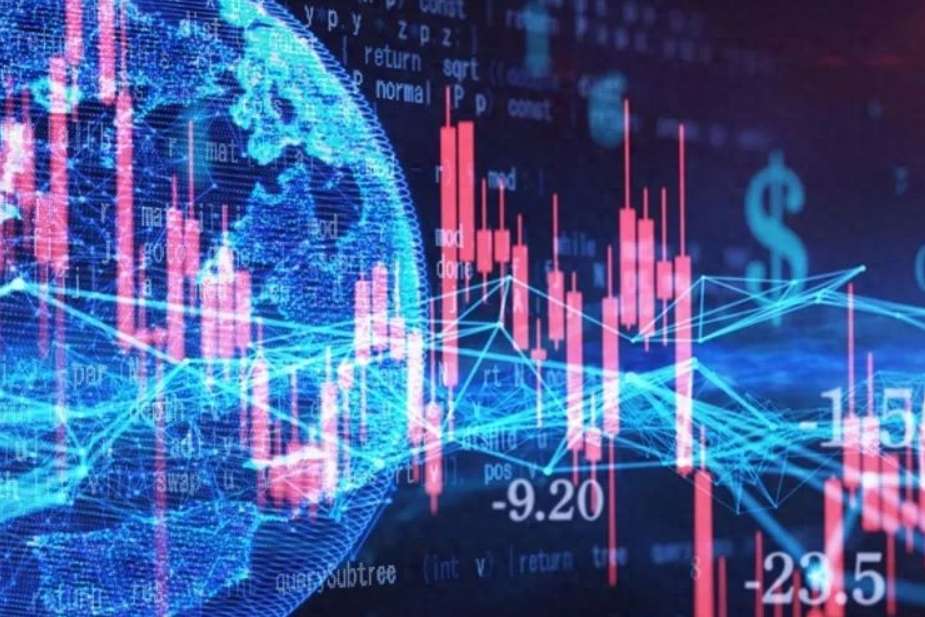Intel's Financial Woes Deepen
Advertisements
Recent reports have ignited speculation regarding the prospective acquisition of Intel, a titan in the semiconductor industry, by a yet unnamed company, with Tesla CEO Elon Musk emerging as a potential buyer. This revelation, shared by Citigroup, saw Intel's stock price surge, reflecting investor enthusiasm and prompting a nearly 10% increase in trading on Friday.
The semiconductor industry has witnessed its share of roller-coaster rides, and Intel's significance cannot be overstated. Once a dominant force, especially in the computer processor sector, Intel has become emblematic of both innovation and struggle as the market undergoes rapid transformations. Should Musk's acquisition materialize, it would undoubtedly reshape the landscape of the global chip industry.
Historically, Intel has attracted interest from potential buyers, but recent rumors have intensified. Reports have surfaced of Qualcomm's earlier attempts to engage Intel in acquisition discussions, although these negotiations ultimately fell through. The persistent interest from high-profile firms underscores Intel's ongoing relevance and the uncertainty surrounding its future.
On January 17, an article from SemiAccurate, a tech news outlet founded by Charlie Demerjian, brought to light that Intel is a target for a significant acquisition. Subsequently, Business Insider reiterated the notion that Elon Musk is being considered as a potential buyer, raising eyebrows and eliciting widespread discussion in financial and tech circles.
Citi analysts, in their communication to clients, cited SemiAccurate's report identifying Musk as the prospective acquirer. This revelation sent ripples across the market, with Intel's stock price shooting up to a peak of $21.62—its highest since December 6, 2024. Closing the day at a remarkable 9.25% increase, the surge in stock also saw post-market rises, revealing growing investor confidence.

However, not all analysts share the same optimism for Musk’s potential acquisition. Christopher Danely from Citi expressed skepticism in his report, characterizing such a move as likely detrimental for Intel unless a highly experienced CEO can be recruited to guide the company away from its foundry business. The ideal candidate would need a unique blend of advanced manufacturing expertise and a deep understanding of Intel's operations, making the task at hand quite formidable.
The situation with Intel has become increasingly precarious in recent years. Once hailed as a guiding light in semiconductor innovations, challenges surrounding its 10nm manufacturing process, coupled with aggressive competition from rivals, have exposed the company to significant business risks. The transition into the AI chip era has also proven to be a daunting task for the tech giant, with its market share for server chips dipping below 60%—a historic low documented by IDC.
Financial statements reveal troubling figures; for the third quarter of 2024, Intel reported revenues of $13.28 billion—a 6.2% year-over-year decline—alongside a staggering net loss of $16.6 billion. This marked its most significant financial setback yet, attributed to extensive investments in semiconductor manufacturing equipment and consequent impairment losses, alongside an avalanche of expenses incurred due to personnel reductions.
The stakes are raised given that these significant losses stem directly from CEO Pat Gelsinger’s ambitious but ultimately ineffective transformation strategy. Just last month, Gelsinger found himself ousted due to the board’s growing concerns over the direction of his turnaround plans. His departure underscores the tumultuous climate surrounding Intel, further amplified by speculation regarding possible restructuring strategies that include massive layoffs and the suspension of dividends.
The crux of the matter is clear: How can Intel reclaim its former glory? To this end, it has been reported that the company is collaborating with investment banks Morgan Stanley and Goldman Sachs to explore various strategic maneuvers, including divesting its foundry operations and reducing unproductive projects—all while gauging interest from potential investors. This indicates that Intel is not just waiting for acquisition offers to come through; it is actively seeking pathways to recovery in an increasingly competitive landscape.
Previous buyers, notably Qualcomm and Arm, have shown interest in Intel's various operations but have been rebuffed in their attempts, raising questions about the efficacy of Intel’s current offerings. The excitement surrounding the speculated interest from Musk is just one aspect of a complicated puzzle, as the industry watches closely to see how events unfold. Observers note that Musk’s involvement, if any, may stem from a desire to strengthen his semiconductor supply chain for Tesla's expanding fleet of electric vehicles and AI advancements.
The tech community is rife with excitement but equally cautious, as many speculate if this rumored acquisition could catalyze meaningful changes at Intel. Just recently, a prominent analyst from SemiAnalysis, Dylan Patel, hinted at Musk's whereabouts in Florida, suggesting a possible convergence of tech titans in the region—a move that prompted significant conversation among investors eager to speculate on heated market conditions.
As speculation mounts, Musk's could-be acquisition is generating buzz among fans and investors alike, notably from a viral social media post that has amassed over 420,000 views. Enthusiasts are rallying online, urging Musk to take the plunge and purchase Intel, further driving home the point that the public is not just watching passively; they are deeply intrigued by the potential transformation of a legacy tech company.
Ultimately, as of now, there is no confirmed information indicating that Musk will make a bid for Intel. The company itself has refrained from commenting on the rumors, opting instead to navigate the tumultuous waters of corporate restructuring discreetly. The interest—both from potential buyers and competitors—exemplifies the intersection of opportunity and uncertainty that characterizes the current state of the semiconductor industry.
In conclusion, while the potential acquisition of Intel by Musk could mark a dramatic turning point, the realities of improving its operational efficiency and market competitiveness loom large. As history has shown in the semiconductor industry, fortunes can shift as swiftly as technology evolves, making the outcome of this particular narrative all the more engaging for industry watchers.
Leave A Reply